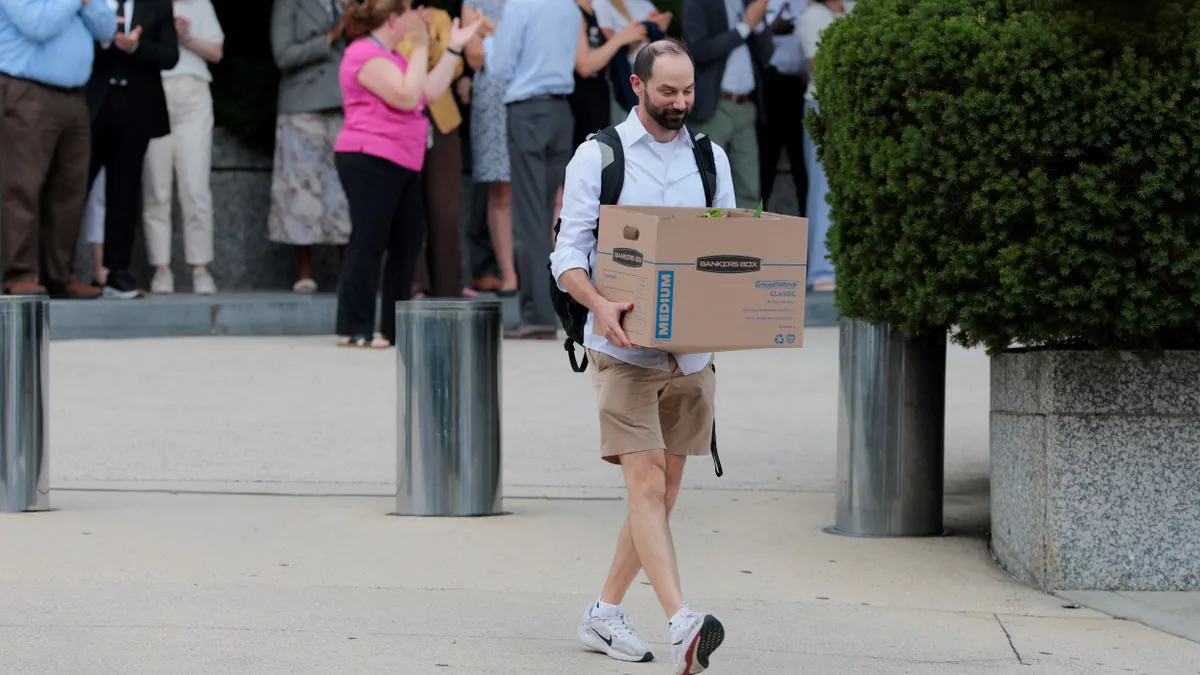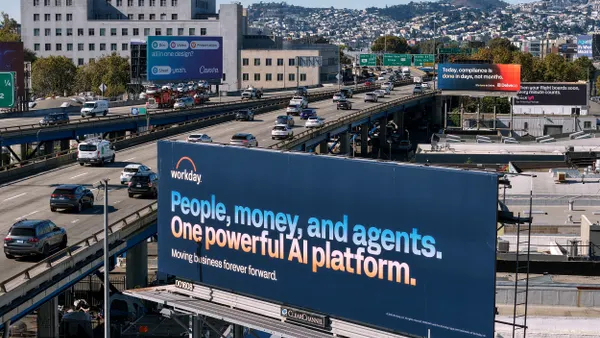Recent reductions in middle management have put pressure on workplace communication, organizational productivity and the employee experience, according to an Aug. 27 report from Firstup, a workforce communication platform.
Front-line workers depend on direct managers as their primary source of company information, clarity and human-focused support, the report found. However, more than a third of employees said their manager seems stretched thin and has become less accessible since layoffs.
“Managers are critical for relaying information, as well as translating organizational priorities into action, clarity and connection for their direct reports,” Bill Schuh, CEO of Firstup, said in a statement.
“As companies adopt leaner organizational models and reduce middle management layers, they risk losing the vital link between leadership and the rest of the workforce, jeopardizing communication, trust and employee engagement — all of which are necessary to deliver and sustain high performance,” Schuh said.
Employee engagement has fallen dramatically during the past year, with managers seeing the steepest decline in engagement, according to a Gallup study. Reports have warned about a manager crash, especially among women and those under age 35.
In the Firstup survey of 1,000 U.S. full-time non-managerial employees whose organizations experienced layoffs in the past year, 52% said their direct manager is their most trusted source for company updates. Only 10% said the same was true about senior leaders.
In addition, 53% said they turn to their manager first when they have work-related questions, and 86% said they rely on their manager to understand what business changes mean for their role at the company.
Nearly two-thirds of employees said they rely on their manager for support with work challenges, and half go to their managers for coaching and professional development.
Workers also said they depend on their managers for meaningful workplace experiences, with 75% saying they rely on their manager for recognition and appreciation and 82% saying the same for task and process guidance.
Notably, career growth also depends on direct manager involvement, the report found. Nearly three-quarters of employees said they rely on their manager for career coaching and feedback.
As managers become less available, employees said they anticipate negative consequences, such as feeling unsupported, lacking direction, feeling unseen, experiencing information gaps, losing a sense of connection and lacking access to mentorship or career development opportunities.
Senior leaders aren’t filling the gap, the report found. Nearly 40% of workers said senior leaders don’t provide mentorship or career guidance, 37% feel unheard and unsupported, and 47% said leadership was only somewhat transparent.













